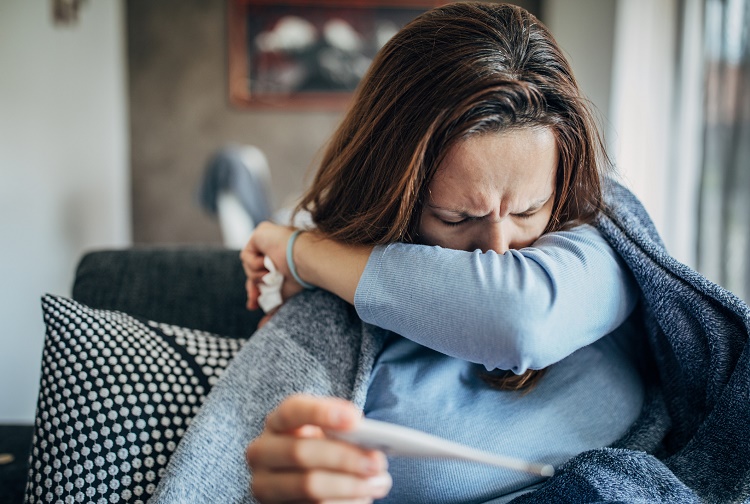
When to get the COVID-19 vaccine
One of the nation's top pharmacists shares insights into COVID-19 vaccinations and how to stay up to date with the latest recommendations.
May 30, 2023 COVID-19 vaccines provide additional protection against severe illness. (Getty Images)
COVID-19 vaccines provide additional protection against severe illness. (Getty Images)
This story was updated after the new mRNA COVID-19 vaccine became available in Sept. 2023. Check out VCU Health News for the latest information on COVID-19 vaccines. (Updated Sept. 25, 2023)
By Sara McCloskey
With tests available over the counter at pharmacies and most facemask requirements being lifted, we’ve reached a point in our day-to-day routines that COVID-19 is a norm we can live with. But similar to other annual medical screenings and vaccinations, there’s a lot to keep up with when it comes to COVID-19 vaccines.
“Even though the Public Health Emergency for COVID-19 ended on May 11 in the United States, COVID-19 did not end,” said Jean-Venable “Kelly” Goode, Pharm.D., professor and Director of Community Pharmacy Practice and Residency Program at the VCU School of Pharmacy. “It is still important to get vaccinated with at least one dose of bivalent COVID-19 vaccine.”
Goode is particularly in the know on this topic, as she recently was appointed as a liaison member to the Centers for Disease Control and Prevention’s Advisory Committee on Immunization Practices, representing the American Pharmacists Association (APhA). The APhA foundation also named Goode as one of the most influential women in pharmacy in 2022.
VCU Health News spoke with Goode to get the lowdown on when you should get your next COVID-19 vaccine and how to stay up to date with the latest recommendations.
As a reminder, how were the COVID-19 vaccines developed?
The most widely available versions of the COVID-19 vaccines and boosters were developed by Moderna and Pfizer based on many years of research into how vaccines can teach the body's natural defenses to recognize a dangerous new virus without actually using any of the virus itself. These "mRNA" vaccines were widely tested and proven safe and effective and undoubtedly have saved millions of lives. Another vaccine was developed by Johnson & Johnson with an older vaccine technology that uses small parts of killed virus to teach the body's natural defenses so they can be prepared to fight the real thing.
How similar is this to the development of other annual vaccines, such as the influenza vaccine or flu shot?
The flu shot is developed each year based on the influenza virus strains circulating in the world. The influenza virus has the ability to change (mutate) every year and sometimes the changes are small and occasionally the change is drastic. The World Health Organization, Food and Drug Administration and Centers for Disease Control and Prevention monitor circulating influenza strains to identify the strains that should be included in the vaccine for the upcoming flu season.
SARS-CoV-2, the virus that causes COVID-19, also has the ability to change or mutate, as has been observed during the COVID-19 pandemic. Fortunately, the mRNA technology allowed manufacturers to change the vaccine as new mutations were observed. The new 2023-2024 mRNA vaccines offer protection against the new circulating strain XBB 1.5. These vaccines provide additional protection against emergency department encounters and hospitalizations and protection against the most critical illness.
How will the process to get vaccinations change with the federal Public Health Emergency for COVID-19 ending?
The federal government helped to incentivize the development and use of COVID-19 vaccines by purchasing the vaccines from manufacturers. This allowed the vaccine to be distributed and administered for free to the U.S. population. However, there is no more funding for the federal government to purchase these vaccines, so they will be transitioned to the commercial market.
As COVID-19 vaccines transition to a traditional health care market, vaccines will be available in typical locations including health departments, clinics, doctors’ offices, hospitals and pharmacies. Mass vaccination clinics will definitely decrease if not completely stop, but may be seen in the future if COVID-19 becomes a yearly vaccine similar to the flu shot.
Will COVID-19 vaccines still be available for free?
The COVID-19 vaccine will be fully covered without a copay for most types of private insurance. They're also covered under Medicare Part B without cost sharing and under Medicare Advantage plans for in-network providers. COVID-19 vaccines will be covered by Medicaid through Sept. 30, 2024, and Medicaid generally covers federally recommended vaccines for beneficiaries.
To maintain access for uninsured Americans, the U.S. Department of Health and Human Services created a program called the HHS Bridge Access Program for COVID-19 Vaccines and Treatments, which will continue to allow free COVID-19 vaccines to the uninsured through partner pharmacy chains and community health centers.
Do you anticipate these vaccinations will become a regular part of our healthcare routines, similar to flu shots and annual vaccinations for schools?
Yes, the current recommendation is that everyone 6 months and older should have at least one bivalent COVID-19 vaccine. Currently, 70% of Americans are considered fully vaccinated, so there is still a need to vaccinate more Americans.
There is discussion about the potential for a yearly COVID-19 vaccine; however, experts have not issued a recommendation for a yearly vaccine.
How often should we get COVID-19 vaccines? Are there certain people who might need to get them more often than others?
The number of vaccines an individual should receive depends on age, type of vaccine, previous COVID-19 vaccines received and the presence of moderate or severe immunosuppression. The overall timing of the shots and the number of doses should be discussed with your primary care physician or pharmacist.
The Centers for Disease Control and Prevention recommends everyone 6 months and older get the newest mRNA COVID-19 vaccine. Even if someone has not received a COVID-19 vaccine before, they are able to get a single dose of this one. If someone recently received one of the older COVID-19 shots, they could get the new vaccine at least two months later.
Young children from 6 months to 4 years old who have been previously vaccinated against COVID-19 are eligible to get the new shot, under an emergency use order.
Where can we find up to date information about when to get COVID-19 vaccines?
People should always consult their health care provider with any questions about COVID-19 vaccines. Updates on these recommendations are available through the CDC website and the Virginia Department of Health.



